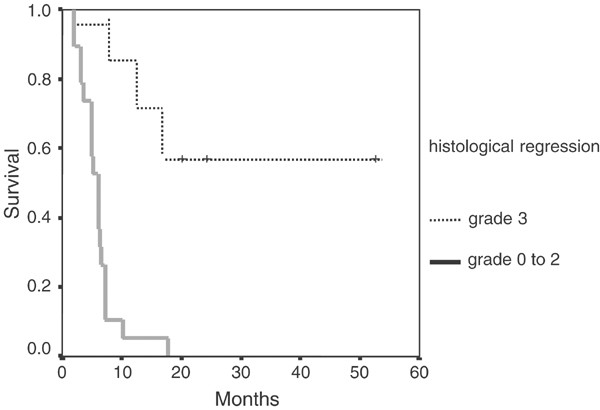- Select a language for the TTS:
- UK English Female
- UK English Male
- US English Female
- US English Male
- Australian Female
- Australian Male
- Language selected: (auto detect) - EN
Play all audios:
We analysed outcome in 206 consecutive male patients treated for metastatic non-seminomatous germ cell tumour (NSGCT) of testicular or extragonadal origin treated with the POMB/ACE
(cisplatin, vincristine, methotrexate, bleomycin, actinomycin D, cyclophosphamide, etoposide) regimen after division into prognostic groups by commonly used clinical classification systems
and definitions of adverse prognosis. The adverse prognostic groups of all classification systems and definitions examined showed similar, but only moderate, sensitivity (71-81%) and
specificity (52-56%) in predicting death. A simple definition of poor prognosis based on raised initial levels of serum tumour markers alpha fetoprotein (aFP) and human chorionic
gonadotrophin (hCG) proved at least as useful (sensitivity 80%, specificity 55%) as other more complicated systems in predicting failure to achieve long-term survival. Comparison of survival
between ultra-high dose cisplatin-based combination chemotherapy and patients treated with POMB/ACE shows no advantage from this more toxic approach. This suggests that good results in
adverse prognosis patients can be achieved using conventional dose regimens administered intensively.
Anyone you share the following link with will be able to read this content:





![[withdrawn] littleworth estates ltd (nps/na/001673): application made to abstract water](https://www.gov.uk/assets/static/govuk-opengraph-image-03837e1cec82f217cf32514635a13c879b8c400ae3b1c207c5744411658c7635.png)

